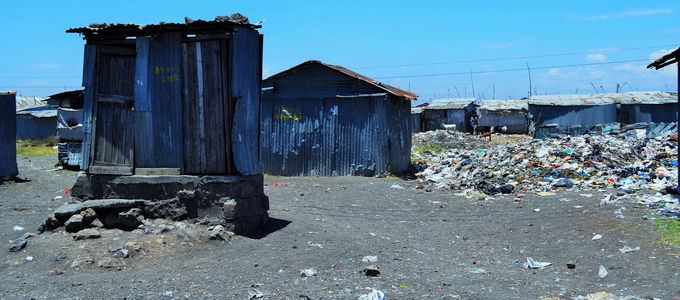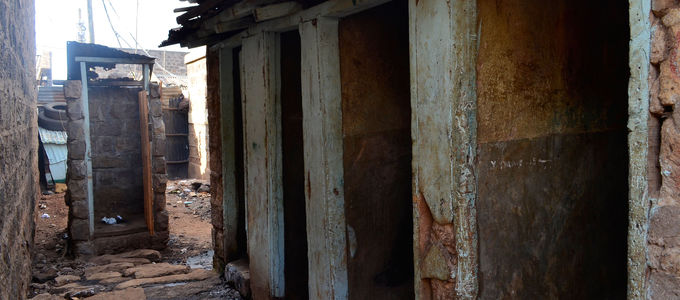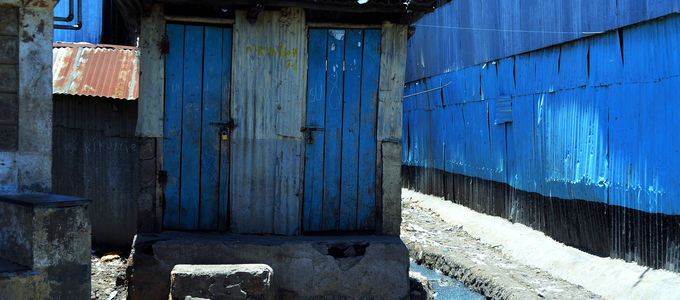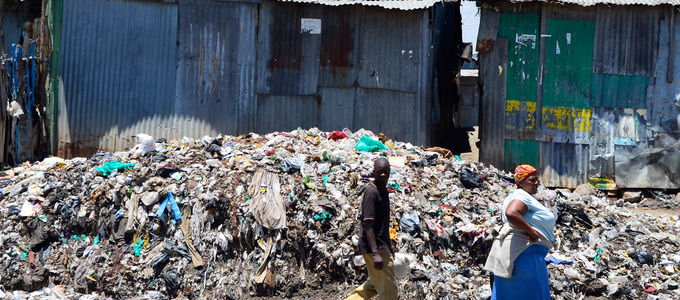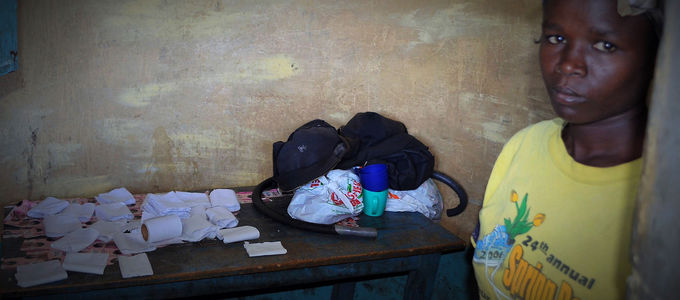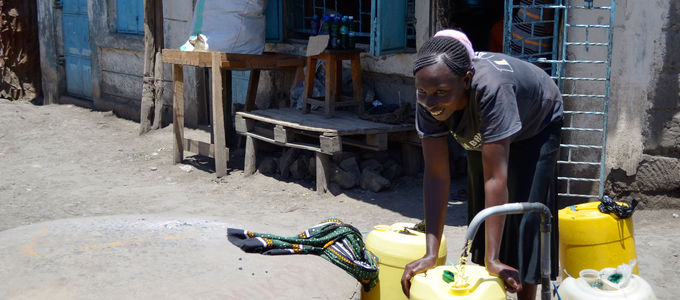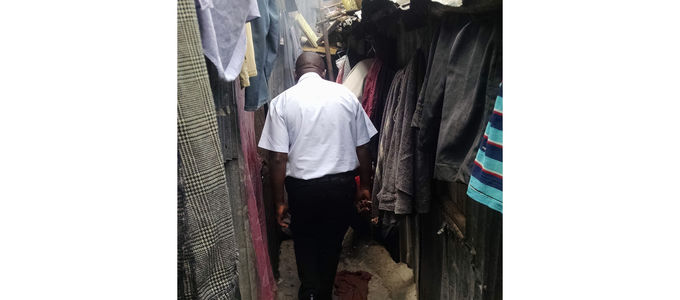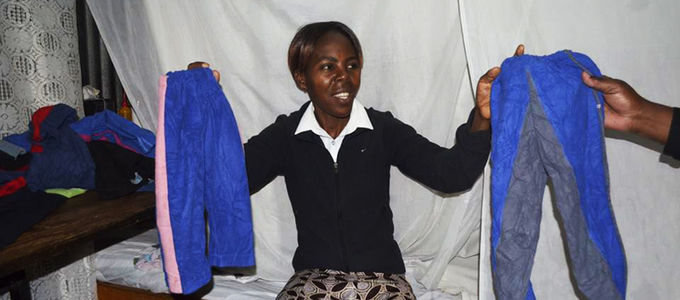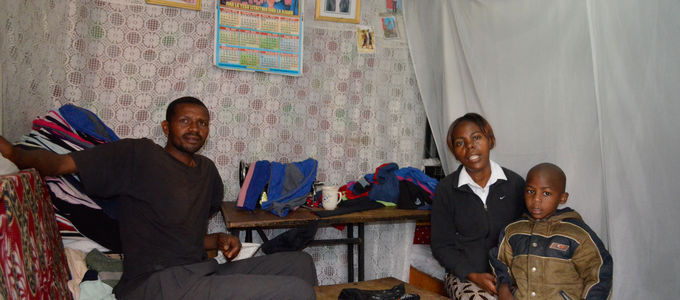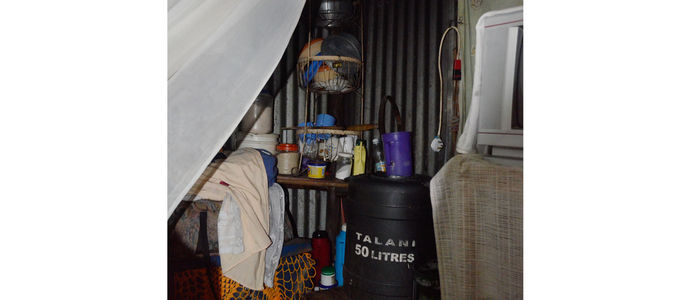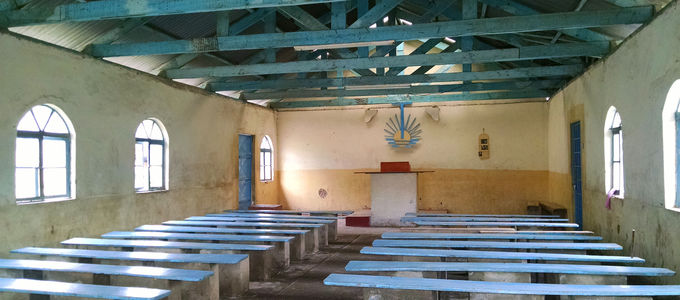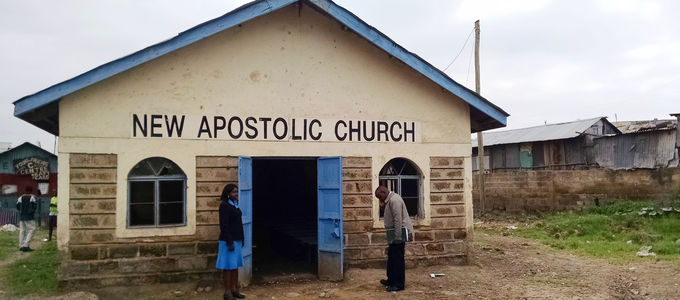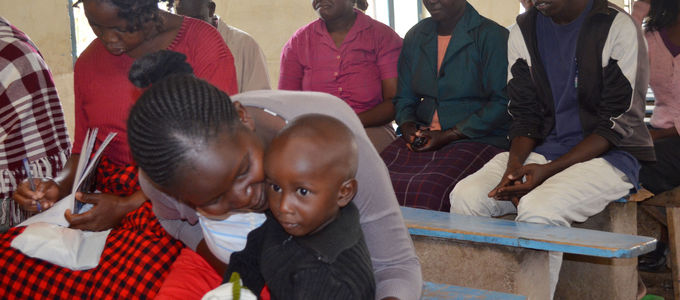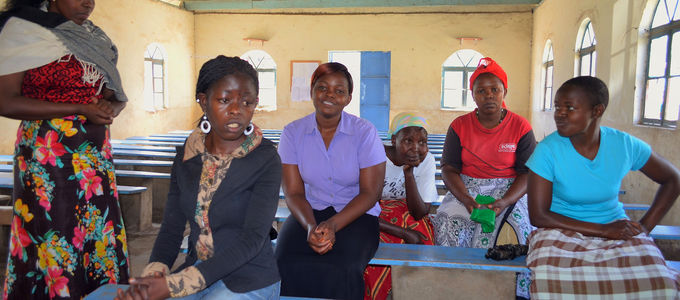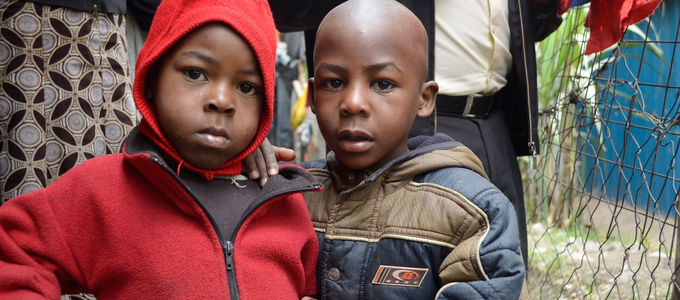Jaqueline, the seamstress in Mukuru
Creativity and the courage to change things are what distinguish Jaqueline. She has developed a business idea in one of the biggest slums in Kenya and has become an example for many.
Mukuru is the second largest slum in Kenya, located in the east of the capital Nairobi. More than 700,000 people live here in miserable conditions. The slum is divided into different villages called Mukuru kwa Reuben, Mukuru kwa Njenga, Sinai, Paradise, Jamaica, Kingstone, Mariguini, Futata Nyayo, and Kayaba. in verschiedenen Vierteln des Slums: Mukuru kwa Reuben, Mukuru kwa Njenga, Sinai, Paradise, Jamaica, Kingstone, Mariguini, Futata Nyayo und Kayaba.
KCrime, drugs, and prostitution, but also the normal struggle for survival, are part of people’s everyday life here. There is a lack of health care and sanitation. A structured education system does not exist. The people live in tiny shacks made from corrugated iron sheets, three by three metres in size. There is one shack per family. Some have electricity, but most are not connected.
International relief aid
Many international aid organizations and religious institutions are active here, hoping to alleviate some of the misery. Tanja Augustin works for NAK-karitativ, the aid organization of the New Apostolic Churches in Germany, and was recently in Kenya and reports about upcoming projects: “We will continue to focus on food security, clean water, and sanitation in western and in central Kenya. Since we have a good structure in place in Kenya, the country will continue to be one of our key focus areas. Currently, there is an additional project. We surveyed two hundred people around one of our New Apostolic congregations in order to establish what kind of help they need,” she explained after her trip. And during one of these interviews she met Jaqueline.
A non-electric sewing machine
Jaqueline is married and has two children, and she is fighting for survival. Day in, day out. Since her husband has a hard time to find work, she tried to come up with a solution. She thought about what skills she has and what she could do to help earn some money.
With a sewing machine that does not need power, Jaqueline has set up her own little sewing shop in her hut. She cuts and sews children’s clothes from used adult clothing, and then sells the “new clothes” in the slum. With the proceeds from the sale she is able to provide for her family. Other women have also taken up this idea and are now also earning money for their families in the same way. “Jaqueline was the first to come up with the idea of recycling old clothes. Her husband was very proud!” Tanja Augustin says.
The family desperately needed money. Life in these slums is not cheap. “The people pay rent for their shacks. If somebody cannot pay, the owners remove the door from the hut or the roof. The rent is about 2,000 Kenyan shillings, which works out to about 20 US dollars,” according to Augustin. The slums are located on land that belongs to people who take advantage of the poverty. So-called slum tycoons, a small number of wealthy landowners in Kenya, are being paid handsomely for letting people live in tiny shacks cobbled together from corrugated iron, wood, or plastic sheeting.
A place of fellowship and hope
Jaqueline does not live far from the New Apostolic congregation, which has its own church building in the slum. About one hundred members gather there for divine services. The services and the fellowship give them strength to live their faith and cope with the daily struggle.
Despite the poverty and the suffering, there are always people in Mukuru who look ahead, who build up, and who do not succumb to despair. They are strong personalities like Jaqueline, who is an example for many in the slum, and the passionate volunteers from around the world, who come to Kenya to help alleviate poverty.
Article info
Author:
Date:
Keywords:
Oliver Rütten
31.08.2016
Kenya,
Aid agencies,
Divine service,
Social commitment,
Congregational life


